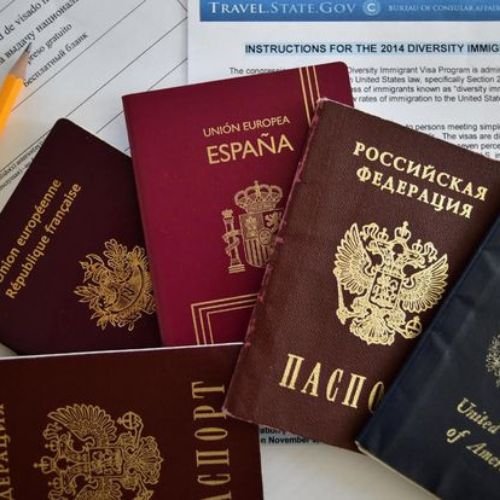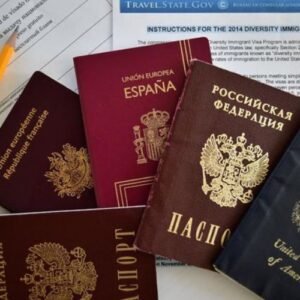Digital Nomad Visa Explained: Your Ultimate Guide to Working and Living Abroad 2025.

Digital Nomad Visa
Digital Nomad Visas Explained:
Imagine this: You’re sipping coffee in a sunlit café in Lisbon, wrapping up a work call, and planning a weekend hike in the nearby Sintra mountains. Sounds like a dream, right? For thousands of remote workers, this dream is a reality—thanks to digital nomad visas. But here’s the catch: navigating the visa process can feel like decoding a foreign language.
Did you know that over 35 countries now offer digital nomad visas, each with its own set of rules, income requirements, and paperwork headaches? From Spain’s 1-year renewable visa to Thailand’s 10-year LTR program, the options are endless—but so are the challenges. Reddit threads are flooded with stories of missed deadlines, confusing tax rules, and visa rejections that derail travel plans.
If you’ve ever wondered, “How do I even start applying for a digital nomad visa?” or “What is the best country for my remote work lifestyle?” you’re not alone. In this guide, we’ll break down everything you need to know about digital nomad visas, straight from the experiences of real nomads on Reddit. Whether you’re a freelancer, remote employee, or entrepreneur, we’ve got the answers to your biggest pain points—and the solutions to make your nomadic dreams a reality.
What Is a Digital Nomad Visa?
A digital nomad visa is your golden ticket to living and working legally in a foreign country for an extended period—typically 6 months to 2 years. Unlike tourist visas, which restrict work activities, or traditional work permits, which tie you to a local employer, digital nomad visas are designed for location-independent professionals.
But here’s the kicker: not all visas are created equal. Some countries, like Portugal, offer tax incentives and pathways to residency. Others, like Estonia, require sky-high income thresholds that can feel out of reach for freelancers.
Top Pain Points from Reddit Discussions
1. The Application Maze
Applying for a digital nomad visa can be complex. Each country has its own requirements—proof of income, health insurance, criminal background checks—and embassy guidance can be inconsistent.
“Submitting documents for Croatia’s visa took months because the embassy kept asking for additional paperwork,” shared a Reddit user.
Solution: Use official government portals and pre-submission checklists to avoid missing documents.
2. The Income Barrier
Let’s face it: not everyone makes six figures. Countries like Estonia (€4,500/month) and Dubai ($3,500/month) have income requirements that exclude many remote workers.
“Estonia’s income threshold is unrealistic for freelancers starting out,” lamented another Redditor.
Solution: Target low-income requirement countries like Colombia (684/month) Mexico (684/month) or Mexico (2,500/month).
3. Tax and Legal Headaches
Taxation is a minefield for digital nomads. Some countries, like Spain, offer tax exemptions for foreign income, but unclear residency rules can lead to disputes.
Solution: Consult tax professionals and research host country tax laws before applying.
4. Visa Processing Delays
Long wait times can disrupt travel plans. Italy’s visa, for example, takes up to 3 months to process.
Solution: Apply early and track progress using tools like Alleo’s calendar feature.
5. Social Isolation
Solo travelers often face loneliness and burnout, especially in transient expat communities.
Solution: Join digital nomad communities like Nomad List or coworking spaces in Lisbon or Chiang Mai.
Practical Tips for Applying
- Research Country-Specific Requirements: Each country has unique rules (e.g., Japan’s ¥10 million income requirement).
- Prepare Documents Early: Gather proof of income, health insurance, and criminal records in advance.
- Leverage Online Communities: Reddit threads like r/digitalnomad and r/expats offer real-time advice and updates.
- Consider Tax Implications: Some countries offer tax exemptions (e.g., Croatia) or reduced rates (e.g., Spain: 24%).
Frequently Asked Questions (FAQs)
Can I Bring My Family on a Digital Nomad Visa?
Yes, but you’ll need to prove a higher income to support dependents (e.g., Spain requires €12,429/year for the first dependent).
What’s the Best Country for a Digital Nomad Visa?
It depends on your budget and lifestyle. Portugal (low cost of living) and Dubai (tax-free income) are popular choices
Do I Need Travel Insurance for a Digital Nomad Visa?
Yes, most countries require comprehensive health insurance covering your stay (e.g., Japan requires ¥10 million in coverage).
Can a Digital Nomad Visa Lead to Permanent Residency?
Some countries, like Spain and Portugal, offer pathways to residency after 5 years.
Conclusion
Digital nomad visas offer incredible opportunities but come with challenges. By addressing common pain points and leveraging Reddit insights, you can navigate the process smoothly.
Call to Action: Ready to start your digital nomad journey? Check out our detailed guides and join the conversation on Reddit for more tips!









